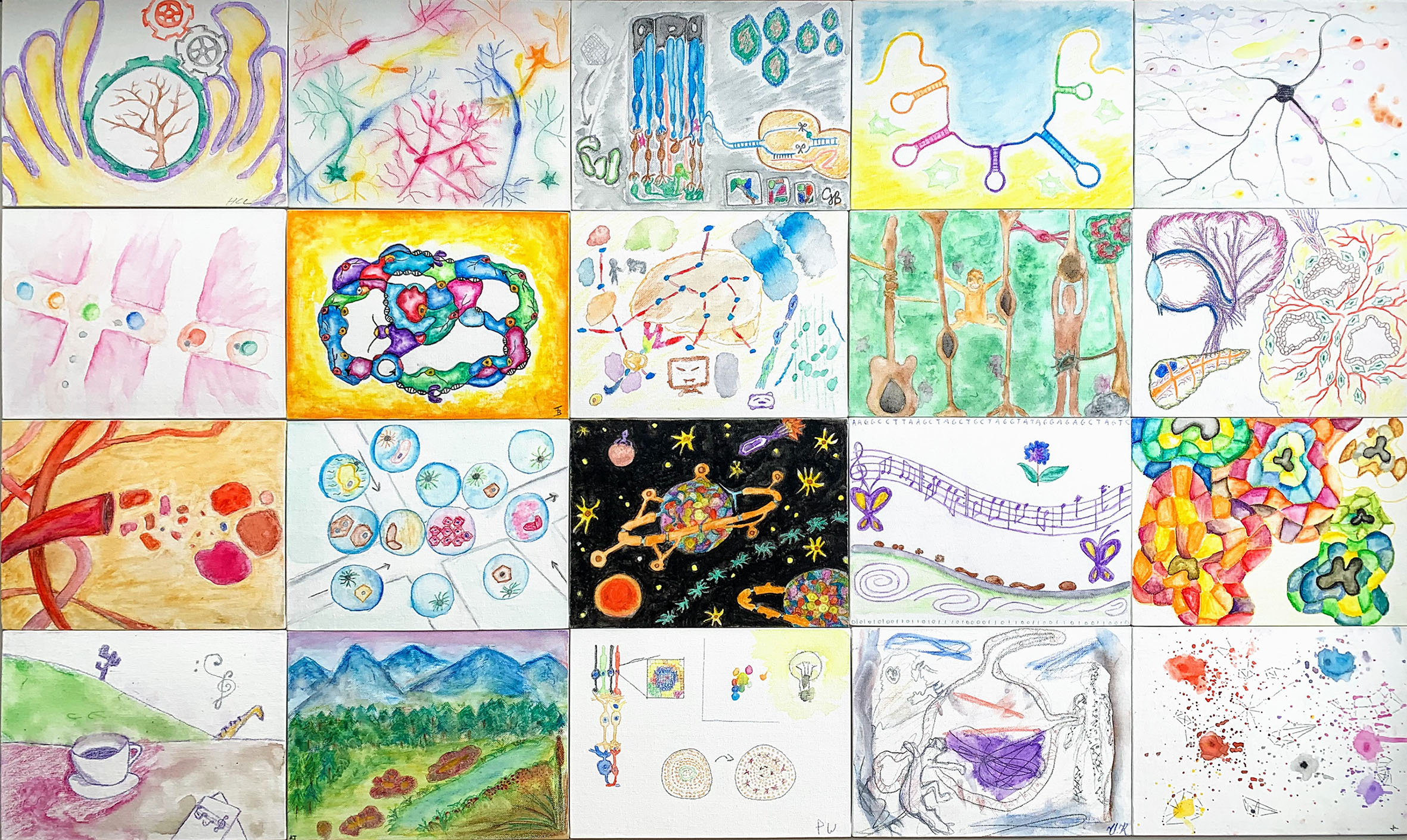Research

The Quantitative Developmental Biology lab is an interdisciplinary group that brings together single-cell genomic, state-of-the-art imaging, and stem cell technologies to understand development, regeneration and reprogramming. Our major goal is to take many measurements of many individual cells in order to reconstruct the emergence of cell fates in complex, heterogenous systems.
Towards this goal, we are using stem cell-derived human organoids to recapitulate human organ development in vitro and to understand how cell fate is orchestrated in human tissues. In recent years, we have shown that cell composition, differentiation trajectories, and gene networks underlying human cerebral and liver organoid development are remarkably similar to those in the developing human, and that developmental disorders can be recapitulated in organoids. We are now perturbing these systems in high throughput and measuring the effect on different fates at the single-cell level.
In parallel, we are growing tissues from human patients with developmental disorders to find out how certain genes, gene networks, and lineages are altered and contribute to the disease phenotypes. We also have been working to understand the plasticity of cell identities during whole limb regeneration in axolotl and other animals, as well as in artificially induced cell fate conversions (e.g. fibroblast/pericyte to neuron direct reprogramming).